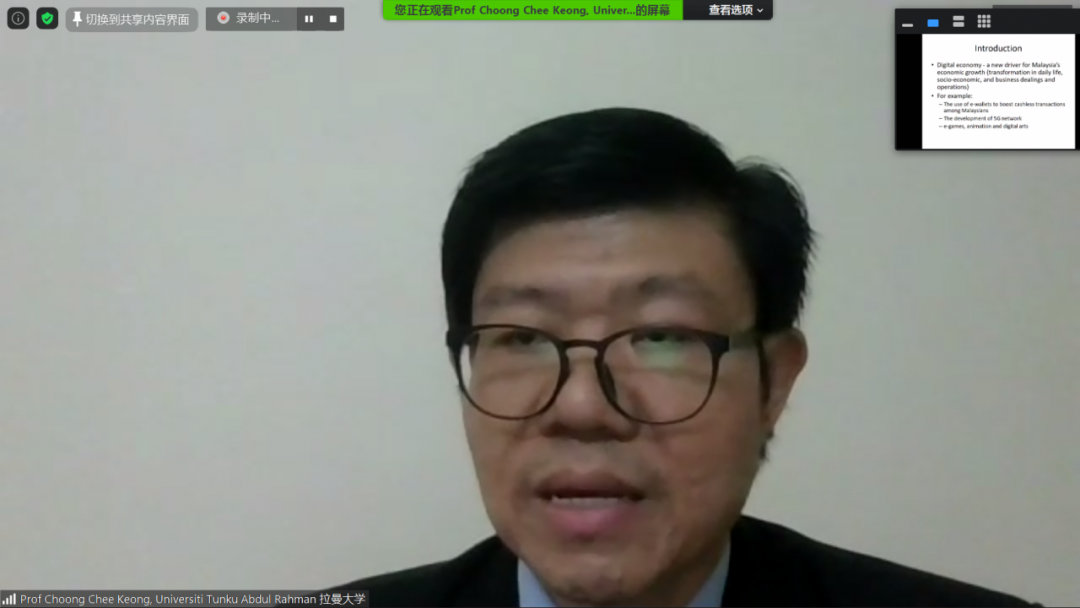
With Covid-19 continuously
plaguing the world, China and several ASEAN countries decided to come
together to restore their respective economies by kicking off the
China-ASEAN year of Digital Economy Cooperation (DEC). Thus, the 2020 Cloud
Forum for Digital Economy International Cooperation was held on 29 July 2020
in Nanning, Guanxi, China via Zoom to further promote exchanges and
cooperation between China and ASEAN in many fields such as 5G network,
e-commerce, digital infrastructure and others.
The forum was organised by the
Guangxi TusCity Group and sponsored by both the China-ASEAN Business Council
and China-ASEAN Science & Technology Industry Cooperation Committee.
Diplomatic officials, university scholars, well-known entrepreneurs and many
others were invited to participate in the event. Also present at the forum
was UTAR Vice President for Student
Development and Alumni Relations Prof Dr Choong Chee Keong.

Prof Choong
speaking at the forum
(Photo taken from
中盟科委会CASTC)
Alongside other prominent names,
Prof Choong presented two topics titled “Promote mutual assistance,
cooperation and interconnection in digital industries to boost new drivers
of digital economy cooperation and development in the new era” and “Explore
new models and new business opportunities with a focus on five major
dimensions of digital infrastructure, digital consumer, digital industrial
ecology, digital public service and digital scientific research”.
According to Prof Choong, the
digital economy poses as a new driver for Malaysia’s economic growth and the
economic transformation in Malaysia. He specifically emphasised on the
“Industry4WRD” policy, where he stated that the implementation of this
policy is aimed at transforming Malaysia into a main destination for a
high-tech industry by 2025. He also explained the objectives of this
national policy which were to attract stakeholders, create the right
ecosystem and transform industry capabilities. When explaining this, he also
stated that there were three targeted outcomes. The outcomes include having
a higher manufacturing sector contribution, increasing value-added products
and continuing Foreign Direct Investments.
From there, Prof Choong talked
about the major sectors that Malaysia focus for Industry 4.0 policy.
Some of the major sectors include
electrical and electronics sector, machinery and equipment sector, chemical
sector, medical devices sector, aerospace sector and several other sectors.
He continued by explaining the challenges Malaysia would face in having a
digital transformation. The challenges include having less developed
ecosystem, the need for proper business models, lack of funds, regulations
and cyber security, and the greater demand over supply. Another topic that
he touched on was regarding the public and private partnership and
collaboration between Malaysia and China. Last but not least, Prof Choong
shared the five strategies of F.I.R.S.T which were funding, infrastructure,
regulation, skill, and talent and technologies.
Wholly owned by UTAR Education Foundation Co. No. 578227-M LEGAL STATEMENT TERM OF USAGE PRIVACY NOTICE